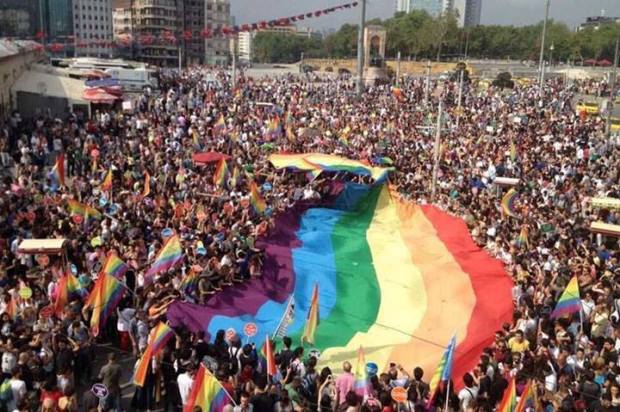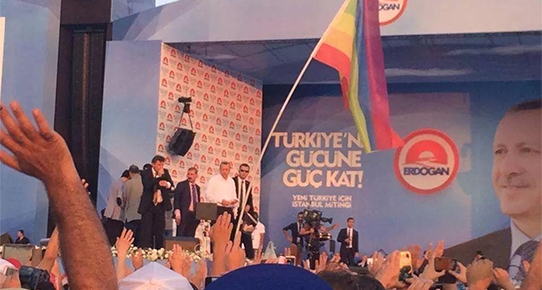Source: Ömer Akpınar, “LGBTI News Turkey looking for new volunteers for translation project”, kaosGL.org, 15 January 2015, http://kaosgl.org/page.php?id=18506
LGBTI News Turkey is a group that first started after the Gezi Park Protests to tell the world about LGBTI issues in Turkey. The group is looking for new volunteers to help their translation work develop. Some of the volunteers of LGBTI News Turkey told kaosGL.org the story behind LGBTI News Turkey and their goals.
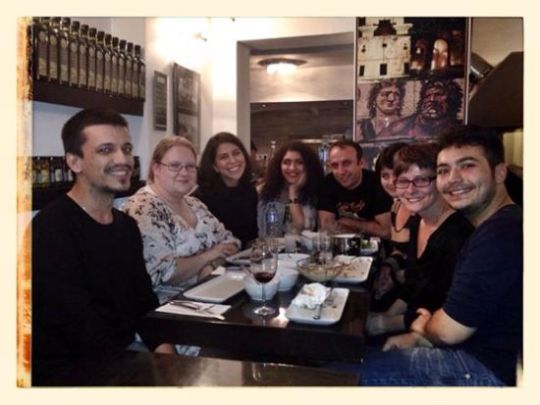
LGBTI News Turkey is a group that first started after the Gezi Protests to tell the world about what’s happening to LGBTI in Turkey. Can you tell us what you have done since August 2013? What do you remember the most?
Zeynep: I think many people felt the need and urgency to do something during and after the protests to be an active member and citizen of this country. Our project was part of this impetus and the thought was to put all this information out there. We first organized around Lambdaistanbul. But I don’t think we are confined to the Gezi movement but are part of the larger global LGBTI and human rights movement. Since August 2013, we translated more than 340 sources and reached more than 50.000 readers from 159 countries. This means that all these people all over the world know something about LGBTI rights in Turkey.
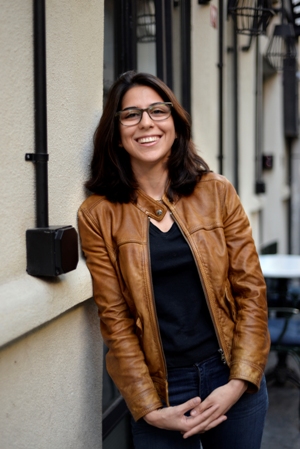
Zeynep
Elizabeth: For me there are two sets of work that remain prominent; the case of Ekogenç in Van and freedom of association, because their aims tie so much with my personal politics, and overshadowing this are the deaths. So many of our community have effectively been disappeared because of how society has treated them. Those that remain clearest are the suicides; there is much sorrow and privilege in presenting someone’s life to the world, to clearly show their final message to those they left behind is vitally important, my heart breaks every time yet, to honour, them it is worth it.
Artis: I joined the team recently and I don’t know the full history of this work. For now, I have translated a few articles but what affected me the most was an interview with a trans inmate. What hurts me the most as a gay man or despite the fact that I am a gay man is the situation of trans individuals in Turkey.
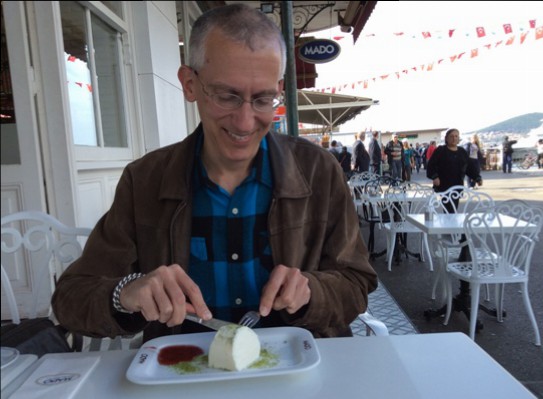
Artis
Translating LGBTI news into English has found a great use in international reporting. Can you talk about the UPR process and other reporting processes you are involved in? How does documenting and sharing what we live provide opportunities for rights advocacy?
Elizabeth: I have long been a believer that it is better to light a candle than curse the darkness. There are times when it feels as if this is all we are doing, and they are incredibly frustrating. Then, every now and then, people see that light. This is why we shout in the darkness, so that people will hear. If we don’t do this work we will never find allies; it is only through spreading the truth that anyone will know what we face here. Hopefully the truth will make people angry enough to question society, to put pressure on national and international bodies to discuss queer issues and LGBTI rights.
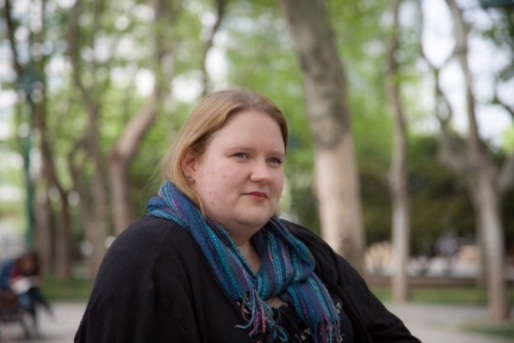
Elizabeth
Zeynep: Translating sources into English has the immediate effect of being useful to global LGBTI and human rights advocacy. Our sources are used for the documentation of rights violations by several organizations including ILGA and IGLHRC. For me, the most stimulating part has been using our sources for the human rights mechanisms in the United Nations. With Kaos GL, we co-authored the LGBTI submission for the Universal Periodic Review and went to the UN in Geneva to lobby diplomats from Turkey and other countries to create an open dialogue on LGBTI rights in Turkey. The strength of the LGBTI movement, its information production and our translations made this possible. I’m really proud of our work.
Can you talk about the need for new volunteers? What kind of people are you looking for? What do you aim to do?
Artis: There is so much to do in this field. I like translating for LGBTI News Turkey because I am interested in Turkey, the Turkish language, and LGBTI rights. I think for someone to undertake this volunteer work, they should be interested in LGBTI rights, Turkey, and translating.
Yağmur: We always need more volunteers. We need people who think that it’s worthwhile to work on translating or editing LGBT related articles when they have some time off from their work. We are a direct translation group, meaning that we don’t modify the pieces that we work on at all, save for factual corrections we present in footnotes. On the other hand, it’s important for our volunteers to understand that each act of translation is in fact a claim to represent. It is impossible to carry out translations without abiding by certain usages and habits that are ingrained in the languages you engage with. In our work, we confront this often through the issue of choosing gender pronouns. There are some linguistic and translational choices which impact the subject matter of the LGBT cause qualitatively. Therefore, we need volunteers who are willing to consider the reflections and refractions of their linguistic choices as they translate.
Elizabeth: From an editor’s point of view I’d like to say linguistically talented ones. But, joking aside, I think we need people with passion and commitment; people who know it won’t always be easy to make others see how important it is or deal with the sadness that comes from the work, yet despite this believe we have to keep hoping and fighting.
Zeynep: But as a starting point, we need advanced Turkish-English language skills and we continuously discuss the nature of our work. This discussion has allowed us to reach what Yağmur has explained. It’s great when our editors are native English speakers. We also need social media volunteers to tweet and post on Facebook. Volunteer work can often lead to burnout and we all need time to turn our brains off. A big enough group would allow us to keep the project sustainable.
Is there anything you want to focus on for 2015? Any specific areas or international documentation, etc?
Yağmur: I think that it is very important to translate documents that reveal rights violations and demonstrate how LGBTs in Turkey are exposed to structural violence. In addition to this, I would like to highlight the significance of translating essays, letters or memoirs that allow us hear the voices of LGBTs themselves. The LGBT movement continues to progress both internationally and in Turkey. As such, this cause acquires a position with a potential claim to represent millions of individuals and agendas. However, what we may term in general as “LGBT rights” involves many social cleavages based on culture, region, religion, sect, sex and politics. I think we ought to discover how these cleavages may impact or modify activism both in terms of sensibly and sensitively engaging with the issue of representation/power and in terms of strengthening the movement itself. I believe that it is through listening to and translating LGBT voices that we may reach these social cleavages.
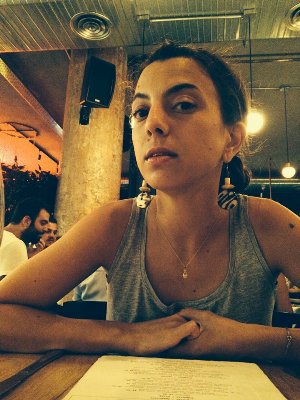
Yağmur
Zeynep: Conducting our own interviews, authoring our own stories. It’s great to translate the excellent work of journalists and activists but we are definitely capable of creating our own sources.
Elizabeth: Perhaps gender and its intersections? For major projects we need to get together and talk about them; it would be nice to have some larger background projects in addition to news articles. I’d like us to find some happy stories.
Artis: I’d be interested in knowing more about LGBTI initiatives in Turkey and how they work to change perceptions. Second, what is being done to expand employment opportunities for LGBTIs? F inally, I am interested in the intersection of religion and LGBTI in Turkey; how do Sunni and Alawite LGBTIs understand and live their religion? Is it possible to create more tolerance and if so, how is it being done?
lgbtinewsturkey.com
www.facebook.com/lgbtinewsturkey
https://twitter.com/lgbtinewsturkey
Share this:
-
Click to print (Opens in new window)
-
Click to email this to a friend (Opens in new window)
-
Click to share on Facebook (Opens in new window)
-
Click to share on Pinterest (Opens in new window)
-
Click to share on Tumblr (Opens in new window)
-
Click to share on Reddit (Opens in new window)
-
Click to share on Pocket (Opens in new window)
-
Like this:
Like Loading...
 While working for political representation in municipalities, at the National Assembly and all levels of governance, the LGBTQI+ movement mobilises its efforts to produce its own cultural representations and images against the discursive and symbolic violence, two aspects of heteronormativity and sexism ever so sinister and so deeply engraved in our lives.
While working for political representation in municipalities, at the National Assembly and all levels of governance, the LGBTQI+ movement mobilises its efforts to produce its own cultural representations and images against the discursive and symbolic violence, two aspects of heteronormativity and sexism ever so sinister and so deeply engraved in our lives. As LGBTI News Turkey, we try our best to spread the word and put these images of self-construction into circulation, to help the ceaseless work done by LGBTQI+ civil society organisations (CSOs) of Turkey. For LGBTQI+ CSOs, it takes a relentless effort to maintain continuity in the face of an increasingly authoritarian government, and legal controversies regarding the freedom of speech and right to assembly. We believe that “increasing the visibility of LGBTQI+ individuals” is more than a catch phrase for CSO work: it is a matter of life and death for many of our fellow LGBTQI+ community members. It is about reclaiming the right to live as we are, without any compromise. It is about rejecting to remain in the margins of a life not worth living. As one of the popular protest chants says, “Get used to it, we’re not going anywhere!”
As LGBTI News Turkey, we try our best to spread the word and put these images of self-construction into circulation, to help the ceaseless work done by LGBTQI+ civil society organisations (CSOs) of Turkey. For LGBTQI+ CSOs, it takes a relentless effort to maintain continuity in the face of an increasingly authoritarian government, and legal controversies regarding the freedom of speech and right to assembly. We believe that “increasing the visibility of LGBTQI+ individuals” is more than a catch phrase for CSO work: it is a matter of life and death for many of our fellow LGBTQI+ community members. It is about reclaiming the right to live as we are, without any compromise. It is about rejecting to remain in the margins of a life not worth living. As one of the popular protest chants says, “Get used to it, we’re not going anywhere!”